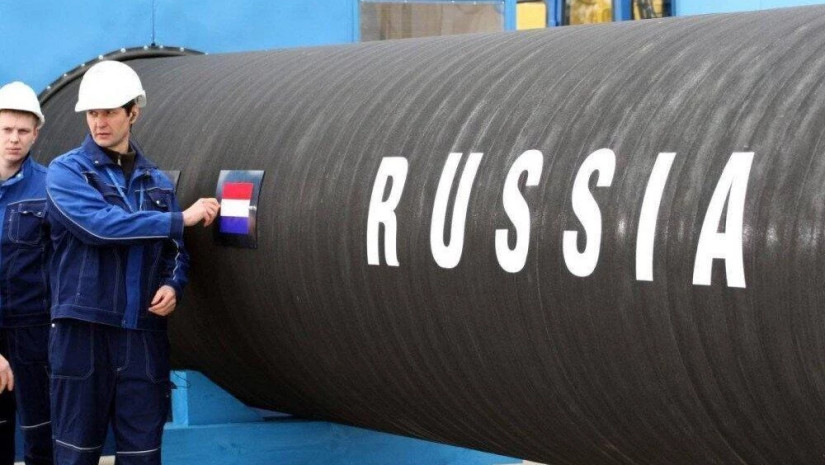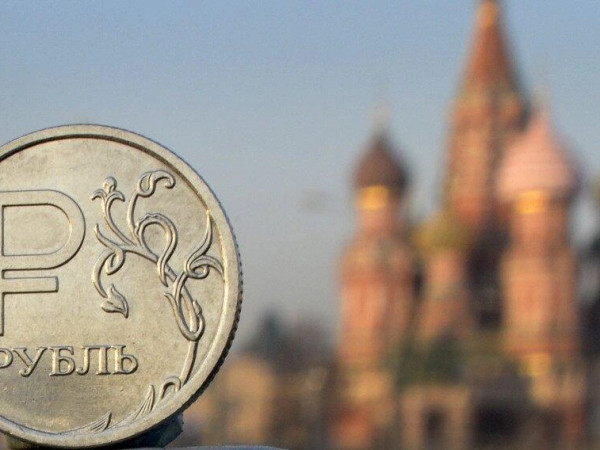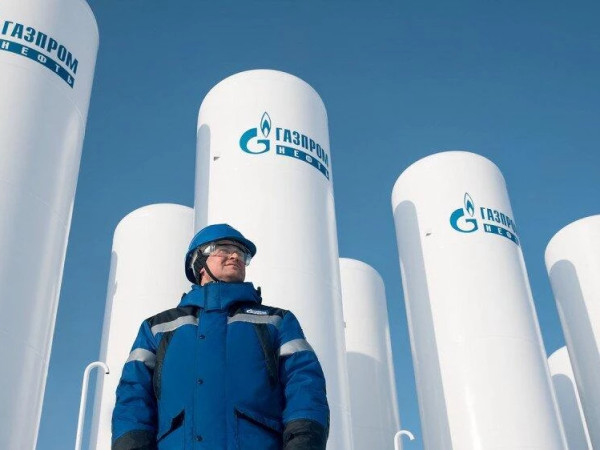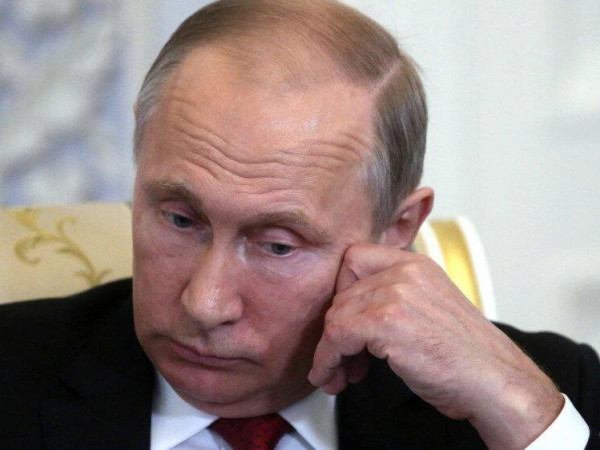Europe's natural gas imports from Russia decreased by about 70% to below 100 million cubic meters per day in July compared to the same month of last year.
Imports dropped to 100 million cubic meters as of July 2022 from about 300 million cubic meters of gas per day in July last year, according to data from the International Energy Agency compiled by Anadolu Agency.
The IEA further predicts a decrease below 80 million cubic meters in the coming months.
European countries imported on average approximately 400 million cubic meters of gas per day from Russia during the January to July period last year, but imports dropped to 240 million cubic meters per day for the January-July period this year.
A significant part of EU sanctions imposed on Russia following the Russia-Ukraine war included steps to reduce dependence on fossil fuel imports from Russia.
The EU aims to completely cut oil imports from Russia by the end of the year while reducing natural gas imports by two-thirds.
Russia's share of the EU's coal imports was around 45% before the war but sanctions effective on Aug. 10 completely halted coal and fossil fuel imports.
Russian energy company Gazprom's decision to stop gas flow to some EU countries and significantly reduce the gas quantity it transmits via the Nord Stream pipeline in June was also effective in decreasing EU gas imports from Russia.
Natural gas exports to six countries have been fully stopped since the Russia-Ukraine War while gas flow to Germany, Italy, France, Czechia, Slovakia and Austria has been restricted.
Russia first cut off natural gas supplies to Poland and Bulgaria on April 27 and gas flow to Finland stopped on May 20. On May 31, transmission to the Netherlands halted followed by Denmark on June 1. Later on July 30, gas supplies to Latvia were suspended. These countries represent a natural gas import volume from Russia of approximately 22.2 billion cubic meters.
Furthermore, Gazprom stated that shipment via the Nord Stream would reduce by 20% of its capacity from July 27, resulting in the daily shipment of a maximum of 33 million cubic meters of natural gas.
The EU has substituted most of its demand losses from Russian gas imports over this period with liquefied natural gas (LNG) imports.
Crude imports from Russia down, diesel imports on rise
The EU imported around 11 million barrels of crude oil and oil products per day last year, from which Russia accounted for almost 30%, corresponding to about 3.4 million barrels a day.
As crude oil imports stood at 2.2 million barrels per day, the Druzhba pipeline, which carries oil from the eastern part of European Russia to points in Ukraine, Belarus, Poland, Hungary, Slovakia, Czechia, Austria and Germany, delivered almost 800,000 barrels of out of total crude imports to the EU.
The Druzhba pipeline is one of the largest crude oil pipeline networks in the world with a total length of 5,500 kilometers including all its branches. The pipeline carries crude oil from Siberia, the Urals and the Caspian Sea, and crosses Belarus where it splits into a northern and a southern branch.
Russia's diesel imports to the EU stood at 500,000 barrels per day, out of a total of 1.2 million barrels of oil products.
According to data compiled by real-time energy cargo tracker, Vortexa, Europe imported below 1.9 million barrels of seaborne crude oil in July, corresponding to 150,000 barrels lower than observed in the previous three months and 800,000 barrels lower than the quarter-one average of 2022.
"At the same time, Europe has been importing more than 6 million barrels per day of crude from non-Russian, non-European sources, 1.25 million barrels per day more than in Q1," Vortexa calculated in its recent analysis.
Despite the fall in EU crude oil imports from Russia, diesel imports are on the rise.
"July diesel imports from Russia rose to an unseasonably high level of 680,000 barrels, up 13% month over month and 22% year over year, and outpacing non-Russian supplies by about 200,000 barrels," it said in the analysis.
Vortexa also questioned whether Europeans will manage to fully carry through on the announced diesel import ban given “this high dependence level and the record diesel prices seen over the last five months, Europe's rising rather than falling dependency on Russian diesel, limitations within the global refining system and the likely significant role of diesel as a replacement fuel for natural gas and power shortfalls,” AA reports.















